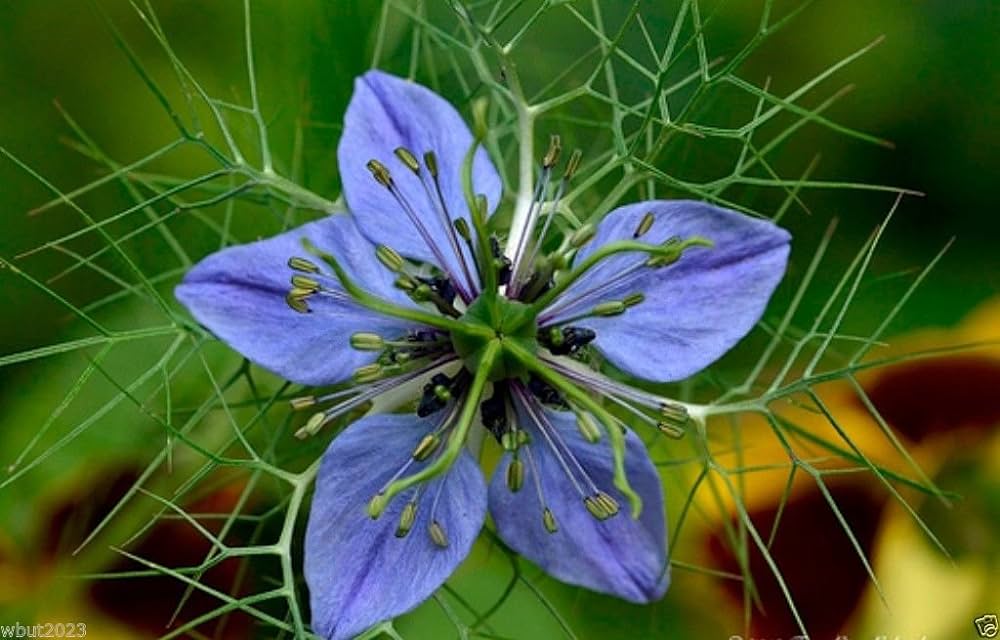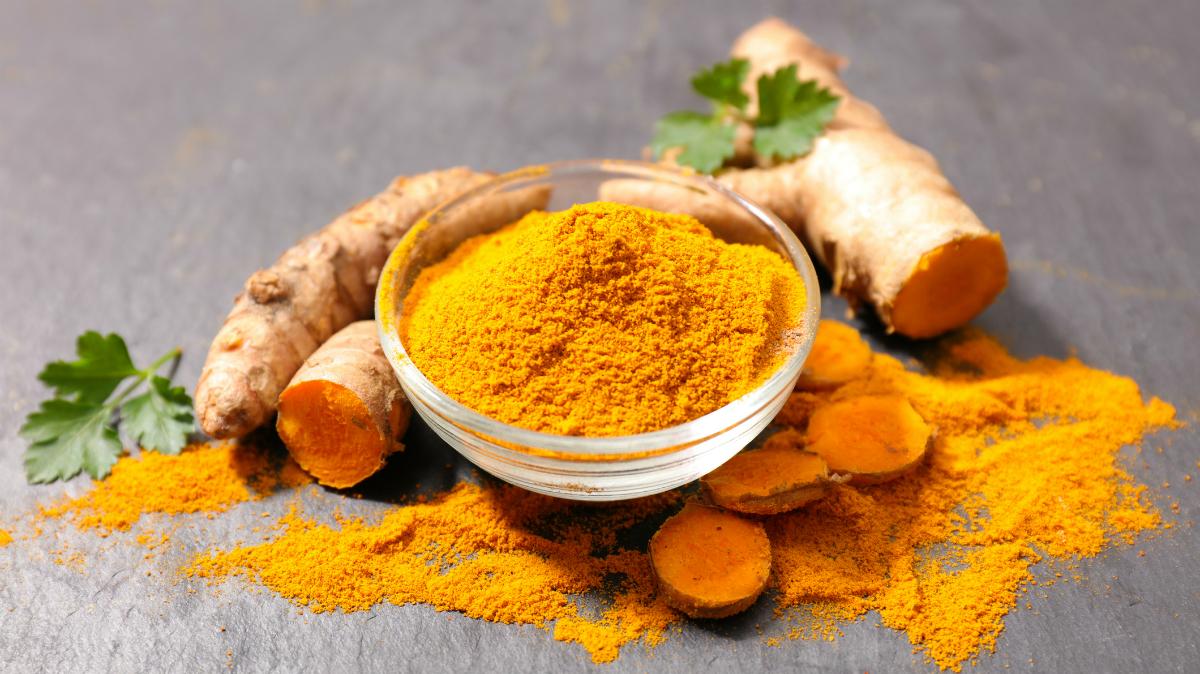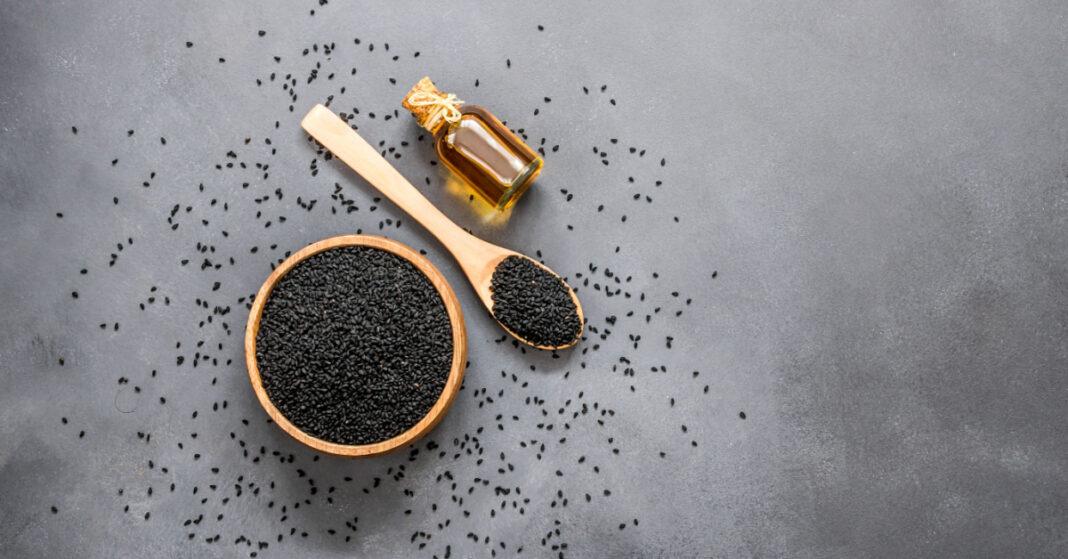Somebody recently challenged me (thinking I didn’t know much I suppose) to come up with a top 10 herbalsremedies.
I may do that some day. It would make an engaging booklet for sure. But it triggered me to think: which are the very BEST, most universal plant healers?
That would mean the widest possible use against the most possible conditions.
Here’s my “Awesome Foursome”! Don’t underestimate them.
Nigella Sativa
Nigella sativa, commonly known as black seed or black cumin, is a flowering plant native to South Asia and the Middle East. The seeds of Nigella sativa have been used for centuries in traditional medicine for their therapeutic properties.
I have some growing in my garden in France.
 Nigella has a very pretty flower
Nigella has a very pretty flower
The prophet Mohammed is reputed to have said Nigella is the cure for EVERYTHING… except death! The historical figure doesn’t strike me as a comic, so maybe it’s just an apocryphal story. Still, it makes a strong point.
Black seed oil is just as famous as the seed. It is circulated widely. You can buy it on Amazon.
In recent years, scientific research has provided substantial evidence supporting various health benefits associated with black seed. Due to its almost miraculous power of healing, N. sativa has got the place among the top ranked evidence-based herbal medicines.
Macroscopically, seeds are small dicotyledonous, trigonus, angular, regulose-tubercular… Haha! I put that in as a joke. You don’t need all that crap! Let’s just say the seeds are tiny and will stick between your teeth, for sure.
Black seed contains several active compounds, of which thymoquinone is paramount. These compounds can inhibit inflammatory pathways and reduce the production of inflammatory cytokines. As chronic inflammation is linked to various diseases, including heart disease and cancer, black seed’s anti-inflammatory effects may contribute to overall health.
Black seed is rich in antioxidants that help combat oxidative stress and free radicals in the body. Once again, thymoquinone is a biggie but there are other phenolic compounds, which may protect cells and tissues from damage caused by oxidative stress, potentially reducing the risk of chronic diseases.
Research suggests that black seed may support the immune system. It can enhance the production and activity of immune cells, such as natural killer cells and T lymphocytes, which play a crucial role in defending the body against infections. Killer cells are our main defense against cancer. They track down malformed cells and destroy them ruthlessly.
It’s a good antifungal and an anti-parasitic. What’s not to love?
[https://www.ncbi.nlm.nih.gov/pmc/articles/PMC3642442/]
Part from the above it protects your liver and kidneys. Several studies have indicated that black seed may have positive effects on cardiovascular health. It can help lower blood pressure, improve lipid profiles by reducing LDL cholesterol and triglycerides, and enhance the function of blood vessels. These effects contribute to a reduced risk of heart disease.
It helps with blood sugar management so can be a boon, used properly, against type 2 diabetes. Research suggests that it can improve insulin sensitivity, reduce fasting blood glucose levels, and decrease HbA1c levels.
It may help alleviate symptoms of conditions like indigestion, bloating, and gas. Some studies suggest that it may also protect the gastrointestinal lining from damage caused by toxins and pathogens.
Topical application of black seed oil has been studied for its potential benefits in treating skin conditions like eczema and psoriasis. Its anti-inflammatory and antioxidant properties may help soothe irritated skin and reduce symptoms.
(you swallow it, don’t rub it on the skin).
Aloe Vera
The name Aloe vera derives from the Arabic word “Alloeh” meaning “shining bitter substance,” while “vera” in Latin means “true.” 2000 years ago, the Greek scientists regarded Aloe vera as a great cure-all.
I love Aloe vera, often referred to as the “plant of immortality.” It is a cactus-like succulent plant that has been used for centuries for its medicinal and therapeutic properties. It is native to North Africa but is now cultivated worldwide for its various health benefits. It’s easy to grow. You can raise it in pots on the window sill. Then if you burn yourself, or have a rash, just break off a ”leaf”, which will ooze healing juice, and rub it in.
In fact, Aloe is renowned for its beneficial effects on the skin. Scientific studies have shown that aloe vera gel possesses anti-inflammatory, moisturizing, and wound-healing properties. It is commonly used to treat sunburns, minor burns, and skin irritations. Aloe vera gel can accelerate the healing process of wounds and reduce inflammation when applied topically.
Magic!
It’s even a kind of cosmetic: Aloe vera gel is a natural “moisturizer”. Research has demonstrated its ability to increase skin hydration and improve skin barrier function. It is often used in cosmetic products such as creams, lotions, and moisturizers to help keep the skin hydrated and supple.
Aloe gel that is rich in vitamins A, C, E, and B12,as well as various healthy polyphenols. If you grow it yourself and want to take it orally, place the cut side down in a bowl and leave it for about 15 minutes to allow the yellow aloe vera latex to drain out and discard it. The latex has laxative properties and may not suit everybody
Aloe vera juice is consumed for its potential digestive health benefits. Some studies have shown that aloe vera can help alleviate symptoms of conditions like irritable bowel syndrome (IBS) and acid reflux.
Aloe vera has been investigated for its potential benefits in oral hygiene. Some toothpaste and mouthwash products contain aloe vera due to its antimicrobial properties, which can help fight harmful bacteria in the mouth and contribute to better oral health.
Finally, Aloe makes a beautiful decorative plant on a side table!

Berberine
Berberine is a real biggie. It is not a plant as such, but is a substance found in several herbal plants, notably Berberis species, goldenseal, and Chinese goldthread. It has a long history of use in traditional medicine systems such as Ayurveda and TCM (traditional Chinese medicine). Over the years, scientific research has provided a huge amount of evidence supporting various health benefits associated with berberine.
One of the most well-documented benefits of berberine is its ability to help regulate blood sugar levels. Numerous studies have shown that berberine can be effective in improving insulin sensitivity and reducing insulin resistance. It may also lower fasting blood glucose levels, making it a potential adjunctive therapy for individuals with type 2 diabetes.
It has also been found to have a positive impact on lipid metabolism. Research indicates that it can lower total cholesterol, triglycerides, and LDL cholesterol levels while increasing HDL cholesterol levels. These effects contribute to improved cardiovascular health and a reduced risk of heart disease.
Some studies suggest that berberine may aid in weight management and obesity prevention. Berberine’s ability to regulate blood sugar levels may also help control appetite and reduce cravings, making it a potential tool for weight loss.
Berberine exhibits potent antimicrobial properties, and it has been extensively studied for its ability to combat various pathogens, including bacteria, fungi, viruses and parasites. It may be used as a natural alternative to antibiotics in some cases.
In addition to that, berberine possesses powerful anti-inflammatory properties. It can inhibit the activity of pro-inflammatory molecules and pathways, which may be beneficial in conditions characterized by chronic inflammation, such as inflammatory bowel disease and rheumatoid arthritis.
Berberine can influence the composition of the gut microbiota, promoting the growth of beneficial bacteria and inhibiting harmful pathogens.
Berberine’s ability to improve lipid profiles, regulate blood pressure, and reduce inflammation contributes to its positive effects on cardiovascular health. Studies have suggested that berberine may help reduce the risk of heart disease and protect against atherosclerosis.
There’s more to this amazing substance but I think you are already impressed.
I myself (Dr Keith’s Own) sell a version of this remedy as Super Berberine. Check it out if you are interested:
GET YOUR SUPER BERBERINE HERE.
Curcumin
Curcumin is a bioactive compound found in turmeric, a bright yellow spice commonly used in Indian cuisine and traditional medicine. Over the years, curcumin has gained widespread attention for its potential health benefits, and numerous scientific studies have explored its various properties.
Personally, I get lots of it in curries… Yum!
 Turmeric powder, which is rich in curcumin
Turmeric powder, which is rich in curcumin
Curcumin is well-known for its potent anti-inflammatory effects. It inhibits the activity of inflammatory molecules and pathways in the body. Chronic inflammation is linked to various diseases, including heart disease, cancer, and neurodegenerative conditions. Curcumin’s anti-inflammatory properties may help reduce the risk of these diseases and alleviate symptoms in inflammatory disorders.
Curcumin is a powerful antioxidant that helps neutralize harmful free radicals in the body. Free radicals, as you know, can cause oxidative damage to cells and DNA, leading to aging and various diseases. Curcumin’s antioxidant activity may protect cells from oxidative stress and reduce the risk of chronic diseases associated with oxidative damage.
Curcumin has demonstrated analgesic (pain-relieving) properties. Studies suggest that it may be effective in reducing pain and inflammation in conditions like osteoarthritis and rheumatoid arthritis. Some individuals use curcumin supplements as a natural alternative to non-steroidal anti-inflammatory drugs (NSAIDs) for pain management.
You can give it a try.
Curcumin may benefit digestive health in several ways. It can help stimulate bile production, aiding in digestion and the breakdown of dietary fats. Additionally, curcumin’s anti-inflammatory properties may soothe the digestive tract and help alleviate symptoms of conditions like irritable bowel syndrome. Yes, soothing curry! Haha!
Research suggests that curcumin may support cardiovascular health by improving several risk factors for heart disease. It may help lower bad LDL cholesterol levels, reduce blood pressure, and enhance the function of the endothelium, the lining of blood vessels.(that’s where fatal clotting events often occur)
And finally, this is what’s of great interest to us Boomers: curcumin has shown promise in supporting brain health. It may enhance cognitive function and protect against age-related cognitive decline. Some studies have also investigated its potential in reducing the risk of neurodegenerative diseases like Alzheimer’s and Parkinson’s disease, although obviously more research is needed in this area.
Emerging research has explored the potential of curcumin in managing symptoms of depression. It may have a positive impact on mood and mental well-being by modulating neurotransmitters and reducing inflammation in the brain. Jolly good!
Well, that’s a LOT for one newsletter. But this is my “Awesome Foursome!” Engage with them, learn their properties and how to handle them. I’m sure there will come a day when you will be glad you did!
To your wonderful health and may Mother Nature bless you.Prof. Keith Scott-Mumby
The Official Alternative Doctor





